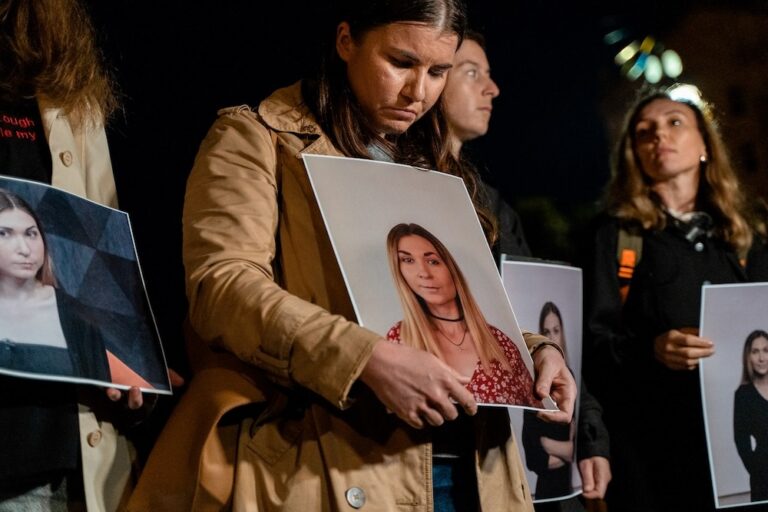(CJES/IFEX) – On 18 February 2008, the Federal Service for the Supervision of Mass Media, Communication and Protection of Cultural Heritage (Rossvyazokhrankultura) asked the prosecutor’s office to file criminal charges against Igor Averkiyev, the author of an article entitled “Putin: Our Good Hitler,” and the newspaper “Za Cheloveka”, which published the article. The article was […]
(CJES/IFEX) – On 18 February 2008, the Federal Service for the Supervision of Mass Media, Communication and Protection of Cultural Heritage (Rossvyazokhrankultura) asked the prosecutor’s office to file criminal charges against Igor Averkiyev, the author of an article entitled “Putin: Our Good Hitler,” and the newspaper “Za Cheloveka”, which published the article.
The article was published on the website http://www.prpc.ru in December 2007 and was later reproduced by the paper “Za Cheloveka”, an appendix to the publication “Lichnoye Delo”, which is published by the Perm region’s Human Rights Center.
The article compares Russian President Vladimir Putin to Adolf Hitler in his early years. However, although the author of the article parallels between the historical eras and social tendencies, he emphasizes that “Russia and Putin have not yet crossed the line that, if crossed, would make the similarity complete.”
Rossvyazokhrankultura finds that the article is “extremist” and can be seen as a public call for a change of the constitutional system in Russia. Specifically, Rossvyazokhrankultura pointed out the statements that Putin continues the work of the “dark” national leaders such as Ivan the Terrible, Mussolini, Hitler, Stalin and Mao Zedong, and the statement that Putin, “like Reichskanzler Hitler eighty years ago,” is seeking absolute power, which is only limited by his own ambitions and the love of his people.
The investigators working on this case have met with the author of the article and the editor-in-chief of the paper that published it. The article has been studied by linguistics experts. The author of the article doubts that the case will ever lead to criminal charges. “It’s just that some bureaucrat has written a statement and the prosecutors are conducting working meetings; that’s all,” he said.
The probe into this case may lead to the initiation of a criminal case on the basis of Article 280 of the Criminal Code of the Russian Federation (which deals with public calls for extremism involving the use of mass media). The journalist is facing up to five years in prison if convicted of the charges.


